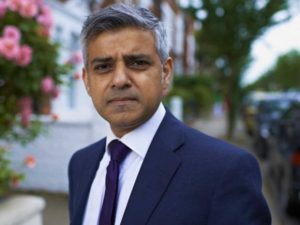London’s Muslim mayor a practised politician
Sadiq Khan’s election as Lord Mayor of London makes him the first Muslim leader of a major western capital city.
But more than this, at a time when US presidential candidate Donald Trump is promising to bar Muslims from America and build a wall to keep Mexicans out, he represents a reality check in milieu of western democratic politics.
As much as anything Khan represents the current character of London; a city now made up of minorities and with 4 million of his co-religionists resident inside the M25 ring road.
Although many would portray his rise as a misty-eyed win for diversity and benevolent multiculturalism, Khan himself is a product of pragmatic politics.
 The son of a Pakistani immigrant bus-driver has been a Labour MP since 2005. He received 1.3 million votes or 56.8 per cent of the total after preferences to defeat his lacklustre Conservative opponent Zac Goldsmith.
The son of a Pakistani immigrant bus-driver has been a Labour MP since 2005. He received 1.3 million votes or 56.8 per cent of the total after preferences to defeat his lacklustre Conservative opponent Zac Goldsmith.
This gives him the biggest individual mandate in British political history.
In representing this major world city and carrying responsibility for its transport, police, housing and environment, both symbolism and delivery will be crucial for Khan. The Labour leadership could then beckon.
With Boris Johnson, his immediate predecessor as Lord Mayor, now the front runner to succeed David Cameron as Conservative leader – the two might one day face off in a general election.
Khan served as a minister under Gordon Brown and went on to nominate two London MPs, Ed Miliband in 2010 and Jeremy Corbyn in 2015, for the Labour leadership.
Some see Khan as unprincipled, slippery, a London party machine man – others say he is just a very good politician.
Relations between Khan and Labour leader Jeremy Corbyn appear to be strained. Corbyn was absent from his swearing in ceremony at London’s Southwark Cathedral.
The different approaches of the two men were highlighted in a recent comment by Khan after his success.
“You change society by winning elections… there is no such thing as heroic failure,” he said.
Khan’s election, almost a year to the day since the 2015 election that saw Cameron returned, also points to the political transformation that has occurred in the UK since the 1990s.
Democracy may be in trouble in much of the world but in Britain it has become a cottage industry.
There used to be the usual four- or five-yearly general elections interspersed with polls for urban and regional councils.
Now, the opportunities to vote have multiplied: the parliament in Scotland, assemblies in Wales and Northern Ireland and the mayoralty and assembly in London.
City mayors and police-and-crime commissioners are now elected in some parts of England.
European Parliament elections come around every five years and, in case anyone is hankering for another excuse to vote, there are intermittent referendums – the latest of which will be the Brexit plebiscite on June 23.
Laurie Nowell
AMES Australia Senior Journalist












